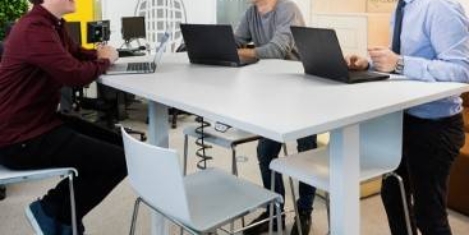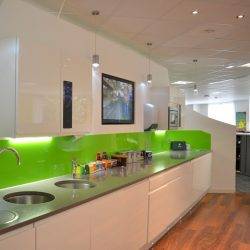November 1, 2016
UK Green Building Council’s HQ claims to set new environmental standards in office refurbishment 0
 By achieving the lowest embodied carbon footprint ever recorded for an office refurbishment in the UK, the new headquarters in Central London for the UK Green Building Council is designed to inspire and encourage employers, landlords and occupiers alike to set the bar high when upgrading their office spaces, according to the organisation. It claims that the project is an exemplar for sustainable office refurbishment and features a range of wellbeing measures. UK-GBC says it hopes that this landmark project will also demonstrate that even a 160m² floorspace can deliver commercial, social and environmental value if each decision is challenged and scrutinised. Wellbeing measures have been incorporated into the design in order to improve staff satisfaction, productivity and overall health and wellness. These measures include: a living wall with over 1,500 plants; an innovative ventilation system, which has delivered a 750 percent increase in background fresh air; an automated low-energy LED lighting system; and products and finishes that minimisepollutants from the air.
By achieving the lowest embodied carbon footprint ever recorded for an office refurbishment in the UK, the new headquarters in Central London for the UK Green Building Council is designed to inspire and encourage employers, landlords and occupiers alike to set the bar high when upgrading their office spaces, according to the organisation. It claims that the project is an exemplar for sustainable office refurbishment and features a range of wellbeing measures. UK-GBC says it hopes that this landmark project will also demonstrate that even a 160m² floorspace can deliver commercial, social and environmental value if each decision is challenged and scrutinised. Wellbeing measures have been incorporated into the design in order to improve staff satisfaction, productivity and overall health and wellness. These measures include: a living wall with over 1,500 plants; an innovative ventilation system, which has delivered a 750 percent increase in background fresh air; an automated low-energy LED lighting system; and products and finishes that minimisepollutants from the air.



































